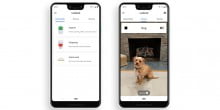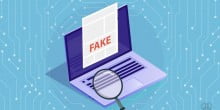One of the first virtual caregivers designed to provide 24/7 care to elderly and chronically ill patients in their homes will be on display at the International Consumer Electronics Show (CES) from January 8-11 in Las Vegas, USA.
CES is an annual event where companies and independent inventors show off state-of-the-art consumer technologies that are under development or about to hit the market. It’s the place to find the most cutting-edge products and prototypes and get a glimpse of our technological future.
At the event, Anthony Dohrmann, the Founder, and CEO of SameDay Security will debut his brainchild Addison CareTM. This is the result of millions of dollars of investment and 7 years of research and development.
Addison is a 3-D animated character designed to supplement home health care for people who need round-the-clock assistance. According to the company’s press release, Addison will appear in the homes of customers via strategically placed 15-inch screens, ready to provide reminders and health advice.
The program can monitor, collect, and measure vitals via wearable devices, answer health questions, and identify whether a patient is cooperating with their care plan. It can also assess whether or not a patient’s health is improving or declining so that physicians can intervene in a timely manner. Each unit will be uniquely programmed with a person’s specialized care plan, in conjunction with their physicians.
“Addison monitors your activity, reminds you to take medications and verifies adherence and provides real-time assessments if a client develops evidence of increased risk of falling or health decline. She measures health performance, rewards her users for making progress, collects vitals and conducts in-home examinations.”
Dohrmann envisions Addison as a solution to caring for our rapidly aging populations. The system would allow the elderly and chronically ill the freedom to remain in their homes instead of entering long-term care facilities. The electronic assistant will be available at a fraction of the cost of daily in-home health care. In many places, this care isn’t always available or accessible to people in need. It would also remove some of the burden on family members whose loved ones need constant care.
“Only 3% of the US population can afford live caregiving,” Dohrmann said. “We are bringing affordable, effective care alternatives to the world through Addison. Working with Home Care Providers and Hospitals across America, we will provide service and product line extensions to serve market need, while delivering alternatives individuals and families can afford. Our goal is to cut costs, improve care and extend functional independence.”
Millions of people around the world live with a chronic illness that requires well-timed medication regimens. Since these can be difficult to manage at home, one of the goals of Addison Care is to make reminders easy. This will reduce patient confusion and medication mismanagement.
In order to succeed, Addison Care will need to be seamlessly integrated into a patient’s home. The program will have to deliver clear instructions and deliver feedback on compliance to a customer’s medical team. Of course, this brings up important privacy concerns.
In the coming months, we will have to pay close attention to security features so we know how patient data is protected. Patient data should never be sold and the devices need to be protected from hackers. The camera monitoring feature could be especially vulnerable.
Telemedicine is the next frontier in bringing health care to people in underserved areas. It also takes some of the burden off of doctors who are overbooked with in-person visits. But before we take the leap, we will have to make sure that the technology doesn’t erode privacy, damage the benefits of the doctor-patient relationship, or encourage blind adherence to the instructions of machines.




Share Your Thoughts